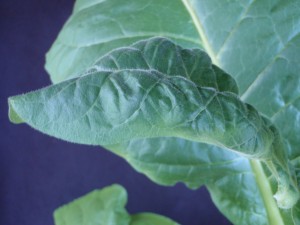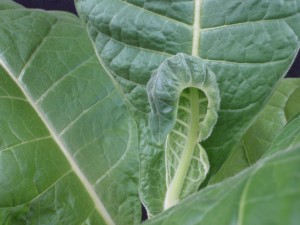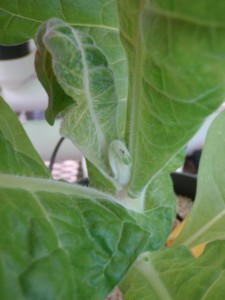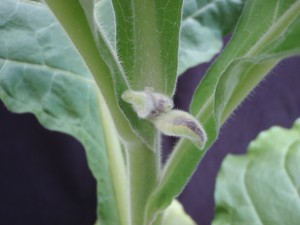From the Field-Agronomy Notes
go.ncsu.edu/readext?422075
en Español / em Português
El inglés es el idioma de control de esta página. En la medida en que haya algún conflicto entre la traducción al inglés y la traducción, el inglés prevalece.
Al hacer clic en el enlace de traducción se activa un servicio de traducción gratuito para convertir la página al español. Al igual que con cualquier traducción por Internet, la conversión no es sensible al contexto y puede que no traduzca el texto en su significado original. NC State Extension no garantiza la exactitud del texto traducido. Por favor, tenga en cuenta que algunas aplicaciones y/o servicios pueden no funcionar como se espera cuando se traducen.
Português
Inglês é o idioma de controle desta página. Na medida que haja algum conflito entre o texto original em Inglês e a tradução, o Inglês prevalece.
Ao clicar no link de tradução, um serviço gratuito de tradução será ativado para converter a página para o Português. Como em qualquer tradução pela internet, a conversão não é sensivel ao contexto e pode não ocorrer a tradução para o significado orginal. O serviço de Extensão da Carolina do Norte (NC State Extension) não garante a exatidão do texto traduzido. Por favor, observe que algumas funções ou serviços podem não funcionar como esperado após a tradução.
English
English is the controlling language of this page. To the extent there is any conflict between the English text and the translation, English controls.
Clicking on the translation link activates a free translation service to convert the page to Spanish. As with any Internet translation, the conversion is not context-sensitive and may not translate the text to its original meaning. NC State Extension does not guarantee the accuracy of the translated text. Please note that some applications and/or services may not function as expected when translated.
Collapse ▲Tobacco Research Update: Calcium Deficiency of Tobacco
In this tobacco research update, we highlight the symptoms of calcium deficiency. These images are part of a project supported by the North Carolina Tobacco Foundation to develop a web-based diagnostic key for the identification of nutrient disorders of tobacco.
Calcium (Ca) is essential for proper plant development and leaf expansion. A calcium deficiency will first manifest in the youngest foliage because Ca is an immobile element. As calcium deficiency progresses, the developmental damages will also advance. The integral role of Ca in leaf development makes its early diagnosis vital to tobacco production.
Early calcium stress in tobacco with first manifest in the new foliage. The initial symptom is a marginal yellowing of the new foliage (Fig. 1). This quickly progresses to death of those cells along the leaf margin. Because these dead cells fail to expand, the topical symptoms will result in a curling of the new leaves (Fig. 2). This shepherd’s crook appearance of the new, expanding leaf is an early sign a tobacco plant is not receiving enough calcium. Deficiencies may occur even if there is adequate Ca in the soil due to the plant’s inability to take up Ca from the soil due to excessive drought or water logged conditions.

Figure 1. Initial Ca deficiency in the new foliage. Note the shepherd crook, or downward curving shape of the expanding leaf.
©2016 Forensic Floriculture

Figure 2. Intermediate Ca deficiency symptoms. Note the yellowing on the leaf margin.
©2016 Forensic Floriculture
As calcium continues to be limited, this curled edge will show signs of deformation and necrosis (Fig. 3). Ultimately, if calcium is not provided to the plant, advanced symptomology will result. In addition to further deformation of the new foliage, the growing tip will die (Fig. 4). This death will stunt the plant’s growth and result in the proliferation of axillary shoot (sucker) growth.

Figure 3. Intermediate Ca deficiency. Here both leaf deformation (tearing) and necrosis are present.
©2016 Forensic Floriculture

Figure 4. Advanced Ca starvation will result in the death of the growing tips, note the darker, spongy appearance of the terminal buds.
©2016 Forensic Floriculture
We would like to express our appreciation to the North Carolina Tobacco Foundation for supporting this project. We will be providing updates as symptoms progress over the course of the nutrient disorder induction phase of the experiment.

Figure 5. The 360-degree view of this symptomatic plant exhibiting calcium deficiency may be viewed by clicking on the above picture.
©2016 Forensic Floriculture
Key Contact: Dr. Matthew Vann, Department of Crop and Soil Science, mcvann@ncsu.edu
Contributing Authors: Paul Cockson, Josh Henry, Matthew Vann, and Brian Whipker
Funding Source: North Carolina Tobacco Foundation
Project Team: Josh Henry (NC State M.S. student in Horticultural Science), Paul Cockson (NC State B.S. student in Agroecology), Ingram McCall (Research Technician in Horticultural Science), Rhonda Conlon (Extension IT at NC State), Matthew Vann (Tobacco Extension Specialist, Dept. of Crop and Soil Science), and Brian Whipker (Professor of Floriculture and Plant Nutrition in Horticultural Science).


